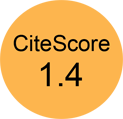Aim and Scope
Asian Journal of Economic Modelling (AJEM) is an international, peer-reviewed quarterly journal dedicated to advancing the frontiers of economic modelling for theoretical inquiry and policy relevance. The journal provides a dynamic platform for the dissemination of high-quality research—both theoretical and empirical—that utilizes economic and econometric modelling techniques to analyze contemporary economic issues and guide evidence-based policy-making.
AJEM invites original contributions that develop, refine, or apply economic models to explore the complexities of global, national, and regional economic phenomena. The journal emphasizes robust methodological approaches and encourages innovative applications of existing and emerging models across diverse economic contexts.
The journal welcomes submissions that include but are not limited to the following areas:
Macroeconomic and Microeconomic Modelling
Theoretical and empirical models explaining economic fluctuations, market behavior, and resource allocation.
Development Economics
Modelling growth, poverty, inequality, and development strategies in emerging and low-income economies.
Energy and Environmental Economics
Economic modelling related to sustainable energy use, climate change, carbon markets, and environmental policy.
Financial and Monetary Economics
Modelling of financial markets, monetary systems, and macro-financial linkages.
International Economics and Trade
Models analyzing international trade, globalization effects, trade liberalization, and economic integration.
General and Partial Equilibrium Models
Structural and dynamic modelling of national and sectoral economies.
Health and Labor Economics
Modelling healthcare systems, labor markets, employment policies, and human capital formation.
Sectoral Economics and Growth Models
Analyses of growth across primary, secondary, and tertiary sectors, including agriculture, industry, and services.
Optimization and Planning Models
Applied mathematical programming and simulation in economic planning and decision-making.
Structural Adjustment and Policy Sensitivity Analysis
Assessments of economic reform programs, adjustment mechanisms, and model responsiveness to policy changes.
Heterodox Economic Approaches
Alternative modelling frameworks challenging mainstream paradigms and incorporating interdisciplinary perspectives.
The journal particularly encourages studies that demonstrate the applicability of models to real-world policy challenges, with a strong emphasis on empirical validation, forecasting accuracy, and policy relevance.
Editorial Objectives
Target Market
Peer Review Process
Copyright and Reprint Permission
Average Time
DOIs at the article level
Publication Frequency
Contact Us
For any inquiries regarding the status of your article, please contact us at status@aessweb.com


